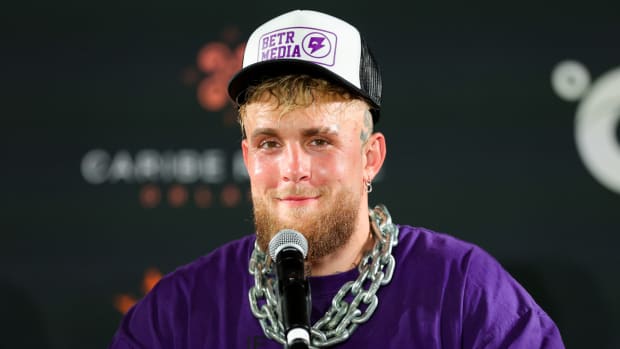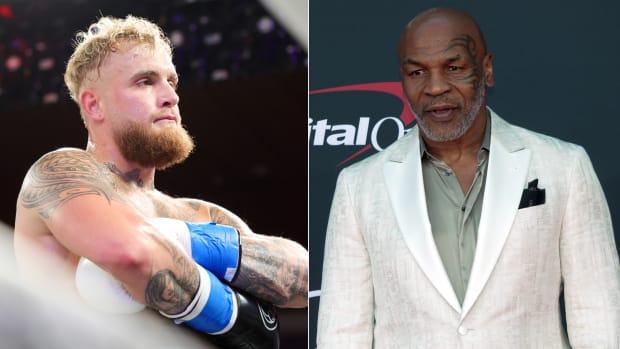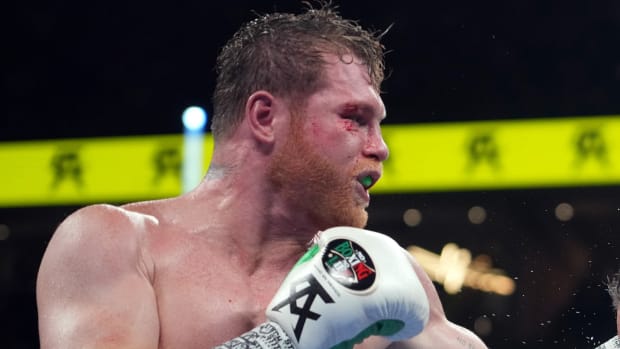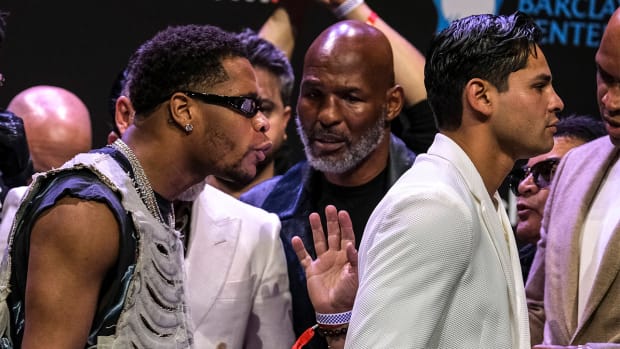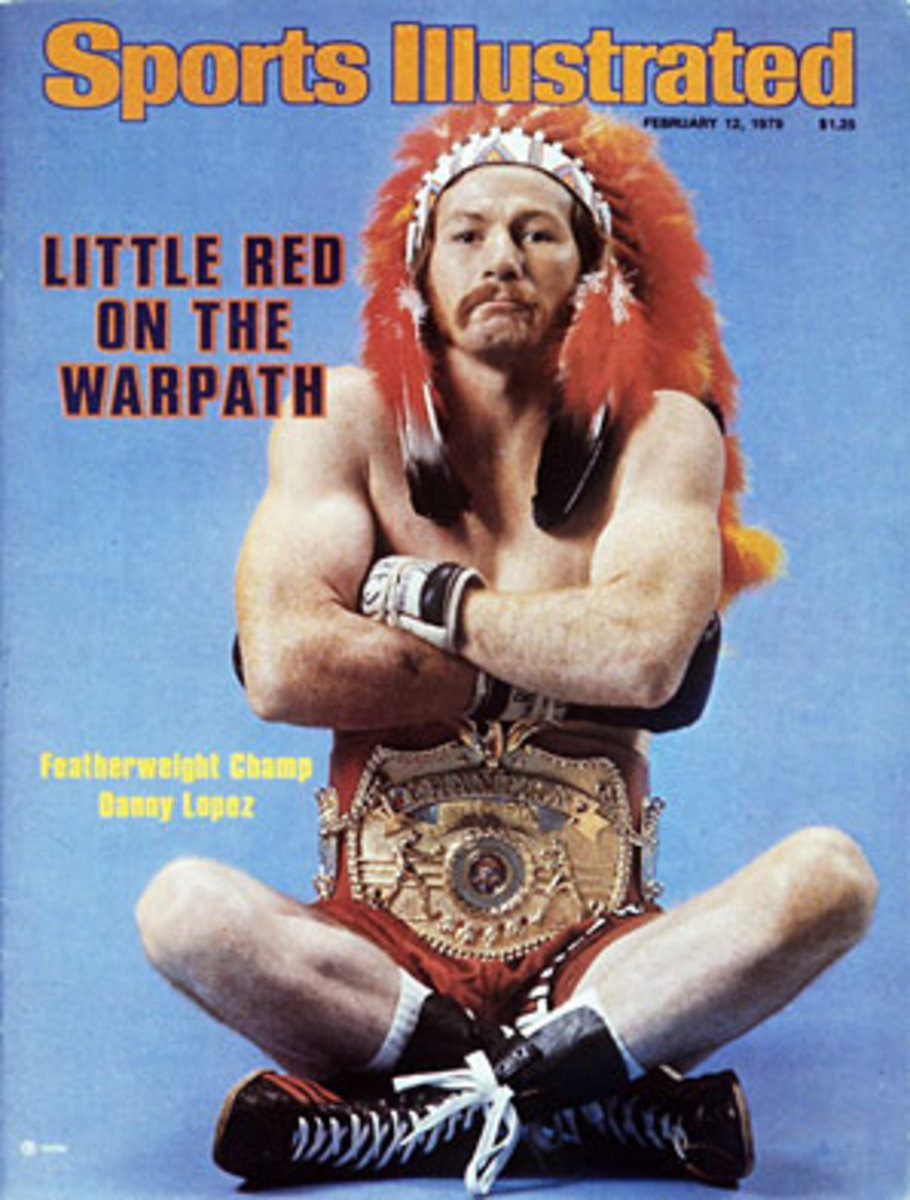
'Little Red' headlines HOF class
CANASTOTA, N.Y. (AP) -- Danny "Little Red" Lopez always had one thing going for him when he entered a boxing ring -- his punishing right hand.
"He was a puncher," former Associated Press boxing writer Ed Schuyler Jr. said.
Was he ever.
In a 10-year professional featherweight career, Lopez went 42-6 with 39 knockouts, a resume that has landed him in the International Boxing Hall of Fame.
"I'm real happy and I feel pretty good," said Lopez, who followed his brother Ernie into the ring, learning the sweet science in Orem, Utah, at the age of 16 before turning pro in 1971 and beginning his career with 21 straight knockouts.
The 57-year-old Lopez heads the 13-member class of 2010 announced Tuesday.
Among the other living inductees voted in by the Boxing Writers Association are: light flyweight champ Jung-Koo Chang, the first South Korean boxer to make the Hall of Fame; manager Shelly Finkel; referee and commissioner Larry Hazzard; German promoter Wilfried Sauerland; matchmaker Bruce Trampler; and Schuyler, the longtime AP boxing writer.
Posthumous honorees to be enshrined on June 13 include: light heavyweight Lloyd Marshall; featherweight champion Young Corbett II; lightweight champion Rocky Kansas; heavyweight contender Billy Miske; broadcaster Howard Cosell; and Paddington Tom Jones.
After losing in a ninth-round knockout to Bobby Chacon on May 24, 1974, Lopez rebounded with wins over Chucho Castillo, Ruben Olivares, Sean O'Grady and Art Hafey before challenging Davey Kotey in 1976 for the WBC featherweight championship in Kotey's African homeland of Ghana.
In front of 122,000 fans, Lopez, spurred by fans from the American embassy, won the title on a 15-round decision. A string of eight successful title defenses followed, including a sixth-round knockout of Kotey and a 15th-round KO of Mike Ayala in 1979.
Lopez's title run ended in 1980 when Salvador Sanchez knocked him out in the 13th round. After Sanchez knocked him out again in their rematch, Lopez retired, though he fought one more time.
Lopez said his most memorable moment came in a 1975 fight against Olivares.
"He was going back and he hit me with a shot, knocked me down," Lopez said. "I was getting back up and he thought I was hurt. He came in to knock me out and I hit him with a straight right hand."
Schuyler covered more than 300 world championships for the AP and figures he was ringside for about 6,000 fights.
"I'm pleased," he said. "I can't say I expected it. I would once in a while think it would be nice, but to say I expected it, no, I can't say that."
Among the favorite bouts he covered, Schuyler listed: the first and third Muhammad Ali-Joe Frazier fights, Ali's "Rumble in the Jungle" against George Foreman, Sugar Ray Leonard-Thomas Hearns, Marvelous Marvin Hagler-Roberto Duran, the first Alexis Arguello-Aaron Pryor fight, and the 1976 Olympic finals in Montreal, where the United States won five gold medals and beat the Cubans head-to-head three times.
There were countless others that didn't quite fit the bill.
"I'll tell you one thing, I saw a lot of bad fights. Wow!" Schuyler, 74, said with his trademark bellowing laugh. "It is nice to know that I'm going to be in the Hall with so many of the fighters I covered, fighters who made the sport great -- Leonard, (Larry) Holmes, Ali, Duran. It's a great feeling that your work is being honored, plus it is even nicer for me knowing I am going in as a wire service guy."
Although he was not at the Ali-Frazier "Thrilla in Manila" or the "Rumble in the Jungle," Cosell was a champion of the sport. He stood by Ali when Ali was stripped of his heavyweight title and forced into a three-year retirement because of his refusal to serve in the military in Vietnam.
Cosell, one of the first to call him Ali when the fighter changed his name from Cassius Clay, gained fame for his colorful calls of Ali's fights and his often outrageous interviews with the champion, including one that led to a studio scuffle between Ali and Frazier.
"Howard Cosell was a good man and he lived a good life," Ali told The Associated Press in an interview after Cosell's death in 1995. "I have been interviewed by many people, but I enjoyed interviews with Howard the best. We always put on a good show. I hope to meet him one day in the hereafter. I can hear Howard now saying, 'Muhammad, you're not the man you used to be."'
"This is a tremendous honor for my grandfather," said Jared Cohane, a grandson of Cosell. "If he were alive, he'd be very proud. My grandfather had a deep love and passion for boxing and a deep caring and concern for the men who boxed."

